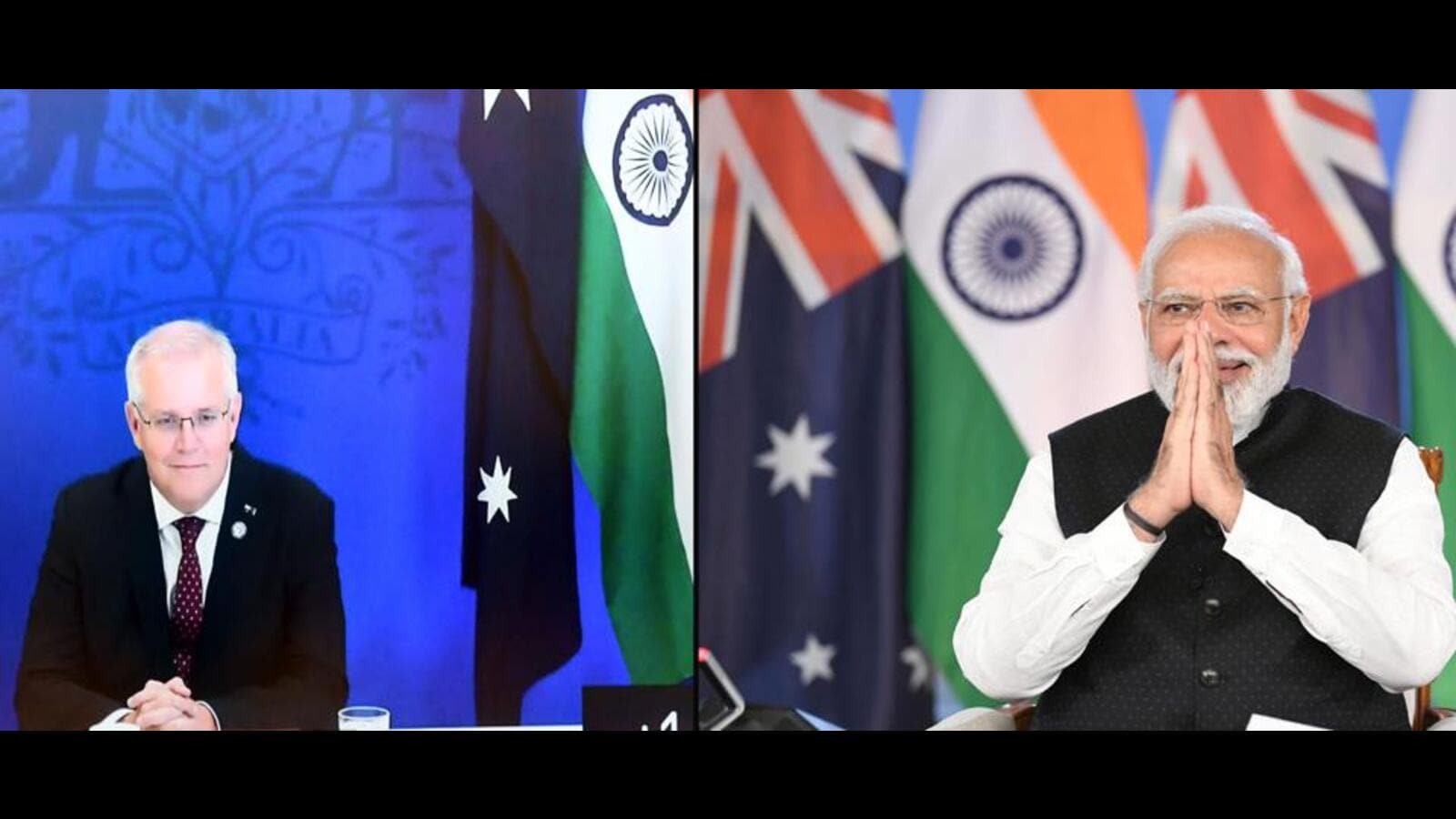[ad_1]
NEW DELHI: India and Australia on Monday agreed to boost cooperation in crucial areas such as critical minerals and mobility of students and professionals as Prime Minister Narendra Modi and his Australian counterpart Scott Morrison held up bilateral ties as a factor of stability in the Indo-Pacific.
The two leaders agreed at their second virtual summit that both countries should finalise both an early harvest trade deal and a comprehensive economic cooperation agreement (CECA) at the earliest. The Australian side unveiled investments of Aus$ 280 million ( ₹1,560 crore) to drive collaboration in areas such as clean technologies, space and innovation.
India and Australia, both members of the Quadrilateral Security Dialogue or Quad, held their first virtual summit in June 2020, when they upgraded ties to a comprehensive strategic partnership. Since then, the two sides have enhanced defence and security cooperation, signing an agreement that gives their armed forces mutual access to logistics and bases, and stepped up collaboration on critical and emerging technologies.
“Our relations have made remarkable progress in the last few years. Trade and investment, defence and security, education and innovation, science and technology – we have very close cooperation in all these areas,” Modi said in his opening remarks in Hindi, referring to Morrison as “my dear friend Scott”.
Morrison said the new initiatives unveiled by Australia will build on the existing foundation as the two sides prepare for a post-pandemic world. Both Modi and Morrison highlighted the need to speedily conclude the CECA being negotiated by the two sides, saying the pact is important for economic recovery and security.
The two leaders also held up the India-Australia relationship as a factor of stability in the Indo-Pacific, foreign secretary Harsh Vardhan Shringla told a media briefing after the summit that lasted more than an hour.
A memorandum of understanding (MoU) signed by India’s Khanij Bidesh India Ltd (KABIL) and Australia’s Critical Minerals Facilitation Office will establish a framework for joint investments in Australian projects to mine critical minerals.
“This is an important area for both our countries and this agreement will give us the opportunities to both invest in Australia’s critical minerals sector and get Australian expertise in this area,” Shringla said. India, as a manufacturing hub, requires access to critical minerals and Australia is a repository of these commodities, he said.
“Our investments together in this area would strengthen the resilience of supply chains when it comes to critical minerals,” Shringla added.
Australia has some of the largest reserves of critical minerals such as lithium, cobalt and vanadium, crucial for the manufacture of mobile phones, electric cars, solar panels and other hi-tech applications.
India is increasingly turning to Australia and other sources to reduce its dependence on China, which dominates around 80% of global critical minerals production. India, Australia and Japan also have a working group on creating resilient supply chains that focuses on critical minerals.
India and Australia also signed a letter of intent to work towards a migration and mobility partnership agreement to benefit their students and professionals. Shringla said a bilateral task force will work towards the mutual recognition of educational qualifications, describing it as an “important step forward” in view of the large number of Indian students studying in Australia.
The two sides also agreed to increase cooperation between India’s National Investment and Infrastructure Fund and Australia’s Future Fund, a sovereign wealth fund. In view of India’s interest in attracting Australian investments in the infrastructure sector, the Indian side is willing to match the tax benefits Australia gives to its sovereign and pension funds when they invest in the country, Shringla said.
Modi suggested the integration of the digital payment platforms of both countries, saying it would help the Indian diaspora of more than 700,000 in Australia. In the field of defence, the two sides announced the Gen Bipin Rawat young defence officers exchange programme, named after the late chief of defence staff.
The two sides also agreed to hold annual institutionalised summits of the heads of government. India currently has such arrangements only with Japan and Russia.
[ad_2]
Source link


